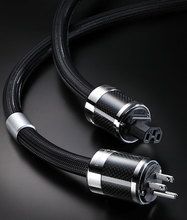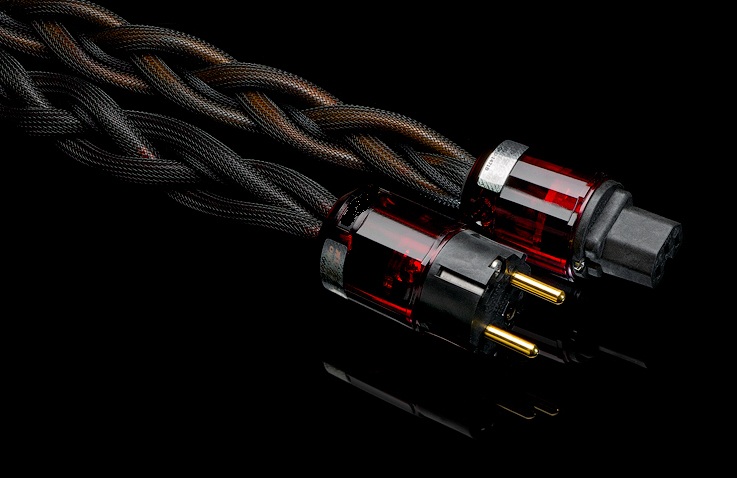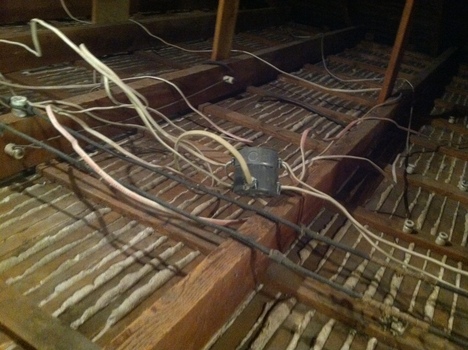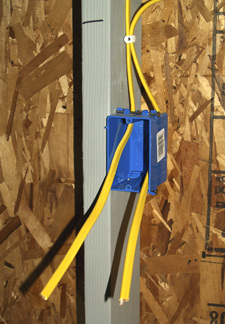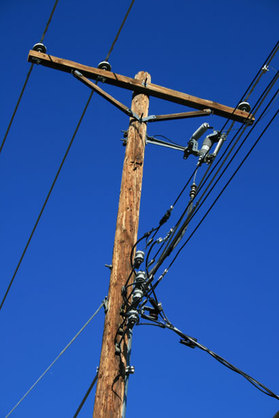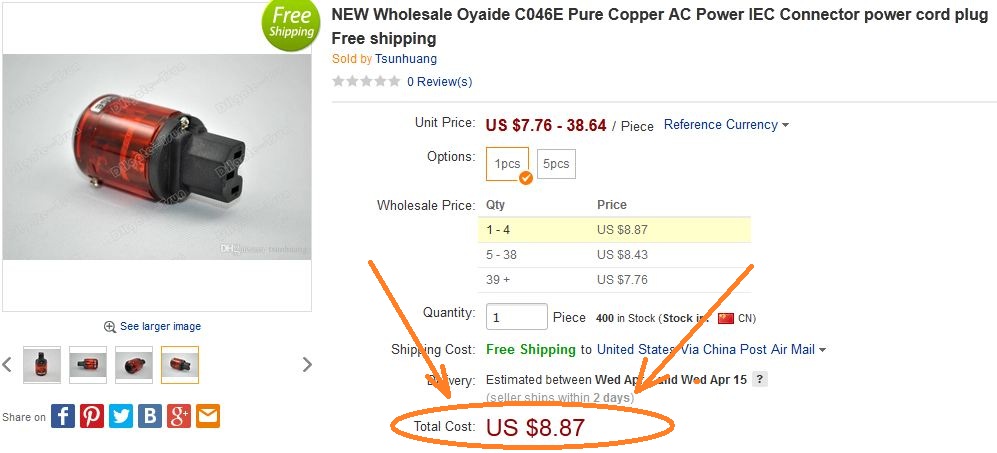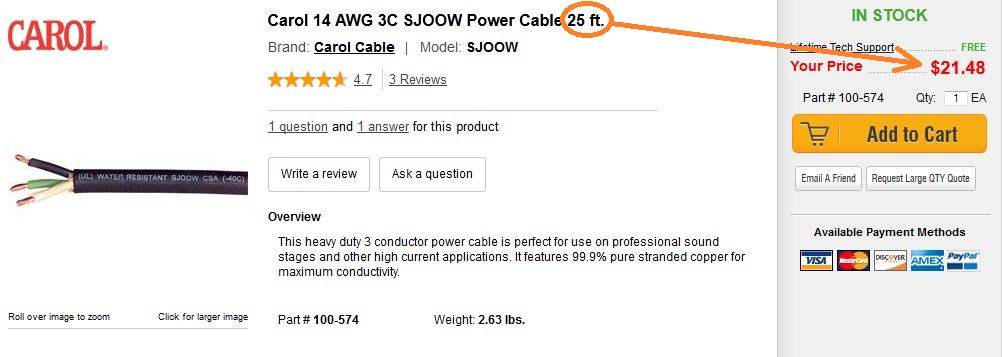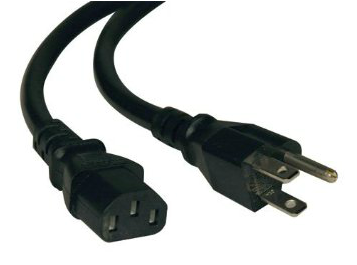|
Seriously. Save your money for things that really count. Here is a nut-bar product to blow your hard earned money: Power Cables - ATTENTION: A fancy power cable with pretty ends, gold connectors, and sheathing on the outside, is not going to make your audio sound better than a regular power cable. Why? Because what is hidden behind your wall, and in your attic, is this kind of stuff: Do you see that white and yellow wiring in the above pictures? This is what is supplying your fancy cable you just wasted serious money on, the power it needs. The trade name of this stuff in your walls and attic is Romex. It's not worried about sounding good, looking good, or allowing you to hear the flutter of angel wings in your audio. It's made to get power to the sockets and switches in your house as cheaply and efficiently as possible. And if that's not enough - lookie here: Right here you have this "premium creosote infused wood fibrous ground insulator power carrier" (aka telephone pole) delivering your next heavenly audio experience. Just for fun, you might call the power company and ask them if they could upgrade their cabling to a premium audio-grade cryogenically frozen copper, and while you are at it, you may also want to ask if they can switch the direction all that power cable is running so that everyone's audio will sound clearer with more robust lows. Finally, just to make sure you are getting your money's worth: Yes, you too can make your own fancy shmancy cable for about $12 - but it's not really necessary. You can always go with old faithful for about 4 bucks:
0 Comments
|
Do you like vintage recording gear and articles? You should visit our sister site: The Vintage Audio Portal!
**Advertise With Us! We have thousands of visitors a day. Contact us here to learn more.
Archives
August 2021
Categories |
